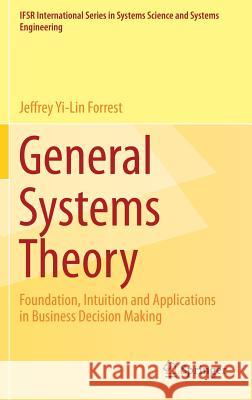General Systems Theory: Foundation, Intuition and Applications in Business Decision Making » książka
topmenu
General Systems Theory: Foundation, Intuition and Applications in Business Decision Making
ISBN-13: 9783030045579 / Angielski / Twarda / 2019 / 370 str.
Kategorie:
Kategorie BISAC:
Wydawca:
Springer
Seria wydawnicza:
Język:
Angielski
ISBN-13:
9783030045579
Rok wydania:
2019
Wydanie:
2018
Ilość stron:
370
Waga:
0.72 kg
Wymiary:
23.39 x 15.6 x 2.24
Oprawa:
Twarda
Wolumenów:
01
Dodatkowe informacje:
Wydanie ilustrowane











